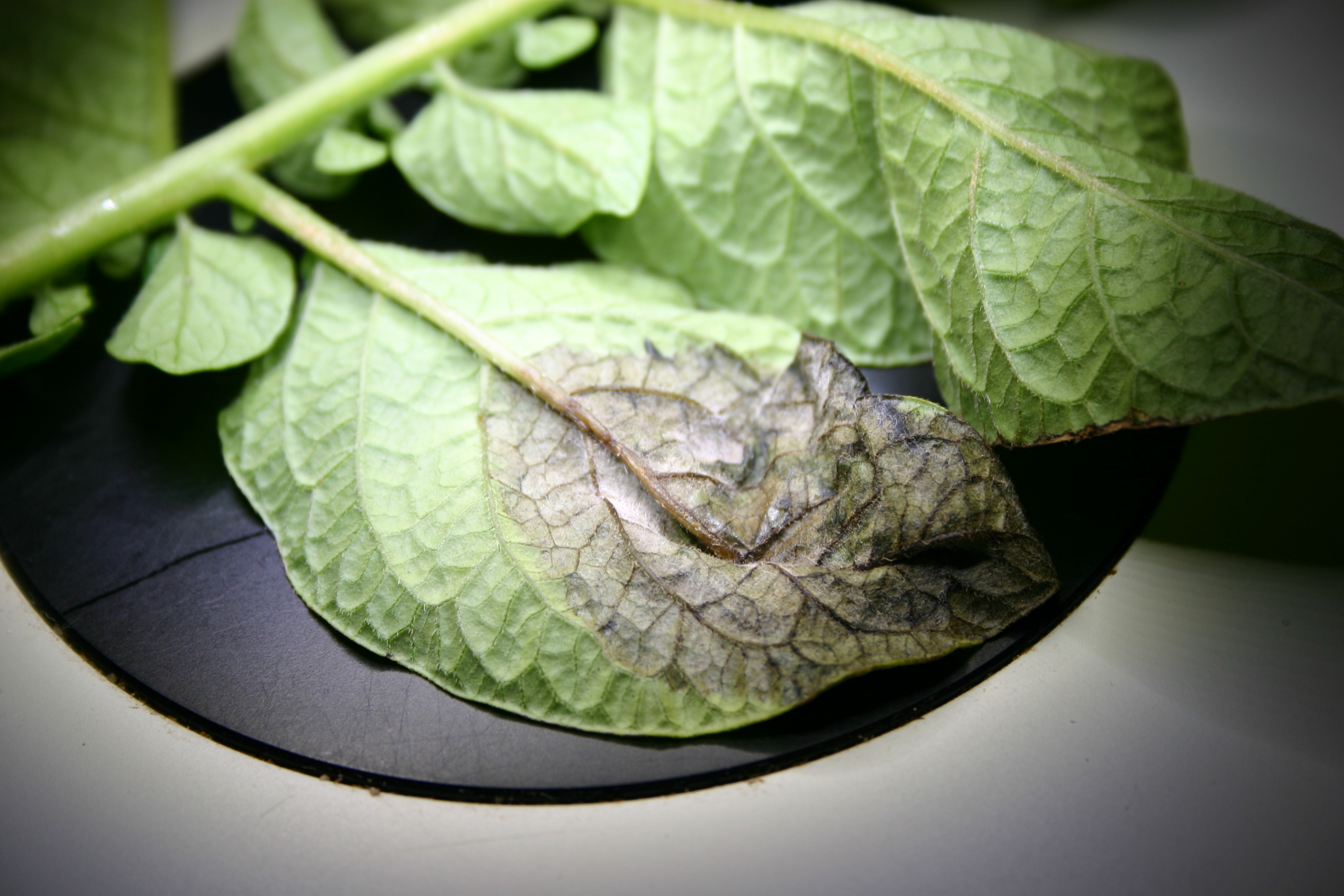Pest News: Potato Late Blight Alert
go.ncsu.edu/readext?224957
en Español / em Português
El inglés es el idioma de control de esta página. En la medida en que haya algún conflicto entre la traducción al inglés y la traducción, el inglés prevalece.
Al hacer clic en el enlace de traducción se activa un servicio de traducción gratuito para convertir la página al español. Al igual que con cualquier traducción por Internet, la conversión no es sensible al contexto y puede que no traduzca el texto en su significado original. NC State Extension no garantiza la exactitud del texto traducido. Por favor, tenga en cuenta que algunas aplicaciones y/o servicios pueden no funcionar como se espera cuando se traducen.
Português
Inglês é o idioma de controle desta página. Na medida que haja algum conflito entre o texto original em Inglês e a tradução, o Inglês prevalece.
Ao clicar no link de tradução, um serviço gratuito de tradução será ativado para converter a página para o Português. Como em qualquer tradução pela internet, a conversão não é sensivel ao contexto e pode não ocorrer a tradução para o significado orginal. O serviço de Extensão da Carolina do Norte (NC State Extension) não garante a exatidão do texto traduzido. Por favor, observe que algumas funções ou serviços podem não funcionar como esperado após a tradução.
English
English is the controlling language of this page. To the extent there is any conflict between the English text and the translation, English controls.
Clicking on the translation link activates a free translation service to convert the page to Spanish. As with any Internet translation, the conversion is not context-sensitive and may not translate the text to its original meaning. NC State Extension does not guarantee the accuracy of the translated text. Please note that some applications and/or services may not function as expected when translated.
Collapse ▲Late blight was found on tomatoes on the Eastern shore of Virginia yesterday (June 20, 2013). Yesterday, the Plant Disease and Insect Clinic at NC State also received pictures of a potato sample from Watauga County, NC that appears to be infected with late blight. However, this is an unconfirmed report and we are waiting for a physical sample to verify. Potato and tomato are susceptible to this disease, and can be significantly defoliated within days if environmental conditions favor the pathogen.
Active scouting and immediate action to protect potato crops in NC from late blight is recommended, since we have been experiencing wet and cool weather that is conducive to disease. For more information about potato late blight and how to control it see factsheets in english and spanish produced by Dr. Lina Quesada-Ocampo at the Department of Plant Pathology. Control recommendations are also available in the USAblight website, where you can also register to receive text and/or email alerts when new disease outbreaks are reported.
For tomato late blight information and control recomendations please refer to the alert released by Dr. Kelly Ivors and the related factsheet for tomato late blight.
If you think you have late blight in your potatoes please contact your local Extension Agent and send photos and/or physical samples to the Plant Disease and Insect Clinic. If late blight is confirmed in your samples by an expert, please send a report at the USAblight website to alert other growers.
Control strategies are provided in the factsheets for commercial growers. Homeowners can use gardening fungicides that contain chlorothalonil as an active ingredient. Organic growers can use copper-based products to slow down disease progression.



